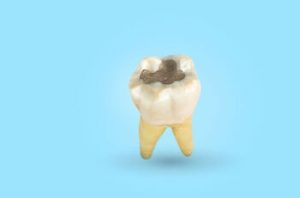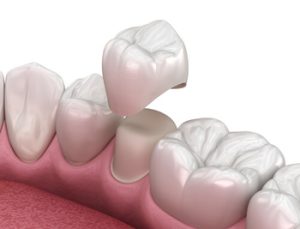Have you ever wondered, what does rotten teeth look like? You’re not alone. Rotten teeth are more common than you might think, and they don’t always appear as dramatic black holes right away. In fact, tooth decay often begins subtly, which is why understanding the signs and maintaining good dental hygiene is essential for protecting your oral health. Maintaining regular check-ups with a trusted dentist can make all the difference in preventing tooth decay from progressing. If you’re concerned about your oral health or suspect you may have rotting teeth, Riverlands Dental Your Trusted Local Dentist in Richmond, is here to help with professional care and advice.
In this blog, we’ll walk you through the signs of rotting teeth, how decay progresses, what causes it, and how to prevent or fix rotten teeth before it leads to more serious problems.
Spotting the Early Signs of Rotten Teeth
It starts with changes to the tooth’s surface
Tooth decay, or tooth rot, begins with the breakdown of the protective enamel. In the early stages, you might notice:


- White chalky spots on your tooth’s surface
- Slight yellowing of the enamel
- Increased sensitivity to hot or cold foods
- A dull ache or mild tooth pain when biting down
These subtle changes often go unnoticed unless you see a dentist regularly.
What does rotten teeth look like as decay worsens?
As decay advances, the signs become more obvious. Rotten teeth may appear:
- Brown, black, or dark yellow in spots
- Rough, pitted, or visibly eroded
- With cavities or holes on the surface
- Chipped or cracked due to enamel weakening
A rotten tooth may also cause an unpleasant taste, bad breath, or visible swollen gums around the affected tooth.
What Causes Teeth to Rot?
The role of mouth bacteria and sugary foods
Rotting teeth are primarily caused by mouth bacteria feeding on sugary foods and acidic drinks. These bacteria produce acids that gradually erode tooth enamel. Over time, this allows decay to reach the deeper layers of the tooth.
Additional risk factors that contribute to tooth rot
- Poor dental hygiene, such as not brushing your teeth at least twice a day
- Dry mouth, which reduces saliva that helps wash away food particles
- Frequent consumption of sweet foods or acidic foods and drinks
- Baby bottle tooth decay, caused by prolonged bottle-feeding, especially with sugary liquids
- Stomach acid from acid reflux or vomiting can damage teeth
- Lack of fluoride toothpaste or protective dental sealants
If these factors persist, bacteria and plaque can break through enamel, reach the connective tissue, and affect the blood vessels and nerve endings inside the tooth.
How Rotten Teeth Affect Your Health
Rotten teeth aren’t just a cosmetic issue
Rotting teeth negatively affect your dental health and overall wellness. An infected tooth can lead to:
- Tooth sensitivity
- Persistent tooth pain or sharp pain when chewing
- Tooth loss if the decay reaches the root
- Spread of infection to the jawbone or other areas of the body
- Complications that require root canal treatment, dental implants, or even extraction
A dental infection in a rotten tooth, when left untreated, can cause the infected pulp to die, leading to severe inflammation and the need for root canals.
Can Rotten Teeth Be Fixed?
Yes, but early treatment matters
The sooner you seek treatment, the better your chances of saving the affected tooth. Depending on the stage of decay, your dentist might suggest:
- Fluoride treatment for very early-stage decay
- Tooth-colored composite resin fillings for small cavities
- Root canal therapy if decay has reached the pulp
- Crowns to restore structure and appearance
- Dental implants or bridges if the tooth is beyond repair
Seeing a dentist regularly helps catch decay early and avoid extensive procedures.
How to Prevent Rotten Teeth from Developing
Good dental habits make all the difference
Preventing tooth decay and keeping your teeth healthy starts with practicing good oral hygiene consistently. This includes:
- Brushing your teeth at least twice a day with fluoride toothpaste
- Flossing daily to remove food particles between teeth
- Rinsing after eating acidic or sugary meals
- Drinking water to neutralize acids and prevent dry mouth
- Avoiding frequent snacking on sweet foods or acidic drinks
And of course, don’t skip your regular dental visits. Professional cleanings and early detection are key to stopping tooth rot in its tracks.
What Rotten Teeth Look Like in Children
Watch out for baby bottle tooth decay
In children, decay can affect front teeth and is often linked to baby bottle tooth decay. If your child’s teeth:
- Appear discolored (white, brown, or black spots)
- Have visible holes or cracks
- Cause discomfort when eating cold foods or hot foods
It’s time to schedule a dental visit. Establishing good dental hygiene early on prevents long-term oral health issues and protects permanent teeth.
The Importance of Early Detection and Action
Don’t wait until it hurts
Many people don’t realize they have rotten teeth until there’s pain or a visible problem. However, decay can gradually affect deeper layers of the tooth long before symptoms appear.
If you notice any of the following, it’s time to see a dentist:


- Discoloration or rough patches on your teeth
- Persistent bad breath or unpleasant taste
- Sensitivity when eating certain foods and drinks
- Gums that are red, swollen, or bleed easily
Timely treatment not only preserves your natural teeth but also prevents the need for more complex and costly procedures.
Final Thoughts: Keep Your Smile Healthy
Knowing what rotten teeth look like helps you stay one step ahead of dental problems. With the right daily care, you can prevent cavities, maintain healthy teeth, and avoid the pain and discomfort that come with decay.
To sum it up:
- Look for early signs like white spots, discoloration, and sensitivity
- Avoid habits that feed bacteria and damage tooth enamel
- Practice good dental hygiene daily
- Visit your dentist regularly to catch issues early
- Act fast if you suspect a rotten tooth is forming
Healthy smiles don’t happen by accident. They’re the result of consistent care, smart choices, and professional support. Take the time to care for your teeth now, and they’ll take care of you for years to come.
References:
https://www.healthline.com/health/rotten-teeth
https://www.medicalnewstoday.com/articles/rotten-teeth
https://my.clevelandclinic.org/health/diseases/10946-cavities
https://www.oralb.co.uk/en-gb/oral-health/conditions/other-oral-health-conditions/rotten-teeth
https://www.colgate.com/en-ph/oral-health/threats-to-dental-health/rotten-teeth-symptoms-and-treatment

